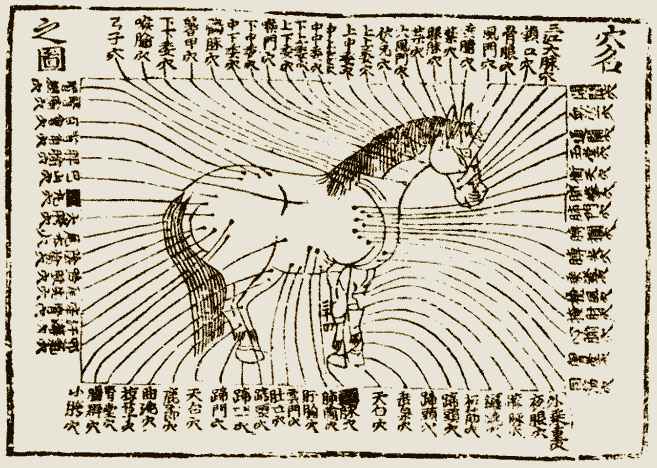INTEGRATIVE & HOLISTIC VETERINARY CARE
1111 Alameda Blvd. NW. Ste E, Albuquerque, NM 87114
TCVM Continued

About TCVM and Veterinary Acupuncture

TCVM and
Veterinary Acupuncture
Traditional Chinese Medicine has been used for thousands of years in China to treat both people and animals.
Throughout the ages, each generation of practitioners has added personal knowledge based on trial and error in order to obtain in successful results.
Acupuncture
Theory
Acupuncture Theory is based on a series of strategic points along channels or “meridians” in the body. These meridians are viewed as energy pathways carrying the vital life-force for overall wellness, which is the key component of TCVM. By inserting needles into specific points along these meridians, acupuncture rebalances the energy flow in your pet and restores health.
The Energy Force known as "Chi" or "Qi"
Traditional Chinese Medicine or Traditional Chinese Veterinary Medicine (TCVM) works with the energy force referred to a as “Chi” or Qi." A number of influences can effect an animal's “Qi” or “Blood,” such as, blockages in the pathways or pathogenic substances that can invade into the body. These issues lead to health imbalances.
Evaluation and Treatment with TCVM

Consultation
Consultations for your pet begin with a thorough health history, discussion of current problems and a complete review of laboratory results, radiographs or other diagnostics performed by your regular veterinarian.
Dr. Schlesinger’s knowledge of western or allopathic veterinary medicine gives him an understanding of current treatment and medications, if applicable, currently being used to treat your pet.
A discussion regarding your expectations for your pet’s health and your desired goals will also be made. This is an important part of treatment in order to ensure that Dr. Schlesinger and you are working toward common and realistic goals for your pet.
Examination
A number of questions will be asked about your pet’s general health, behavior and diet in order to help understand imbalances that may be contributing to your pet’s condition. A complete “Western” exam will be performed as well as a “Traditional Chinese Veterinary Medicine (TCVM)” exam. The TCVM exam includes tongue and pulse characteristics which are used as a means of diagnostics in order to develop an accurate diagnosis from the TCVM point of view.
Possible Consultation with your regular DVM
While the model for Western Diagnostics and TCVM Diagnostics are different, Western Diagnostics help contribute to an accurate diagnosis from the TCVM point of view.
If necessary, Dr. Schlesinger will consult with your regular veterinarian to develop a plan in harmony with current regimens and TCVM treatments acceptable to both you and your veterinarian. You may be asked to return to your regular veterinarian for additional testing or monitoring for certain medical problems or conditions.
Acupuncture: What to Expect
-
Your pet’s condition may respond to Acupuncture Treatment soon after the first session but some animals may need as many as six appointments before improvement is seen. As a result, we recommend that you allow a minimum of six treatments for the benefits of acupuncture to be evaluated or maximized.
-
Many pets show progress by the first or second session. This will continue to with each session until a plateau is reached. The effects of Acupuncture are considered cumulative so regular treatments should be scheduled until the desired outcome is achieved.
-
Initially, your pet's condition may seem to worsen for up to 48 hours after a treatment. He or she may become sleepy or lethargic for the first 24 hours after Acupuncture, but very often this is followed by a positive response resulting in an improvement in your pet’s condition.
-
As treatments progress, visits are spaced out over longer and longer periods. Acupuncture may eventually only be needed periodically for maintenance treatment and re-evaluation by Dr. Schlesinger.
-
We would all like cures for our pets’ conditions or illnesses. Sometimes TCVM may help completely restore all their imbalances. however many chronic or age-related conditions cannot realistically be fully remedied. Occasionally, some pets will show no response at all. Often, the main goal of acupuncture is to reduce the severity of the disease and improve the quality of life for your pet. Chinese herbs can serve as a form of complementary medicine to this process and can be a possible alternative to allopathic, or western, drugs that usually have toxic side effects.

